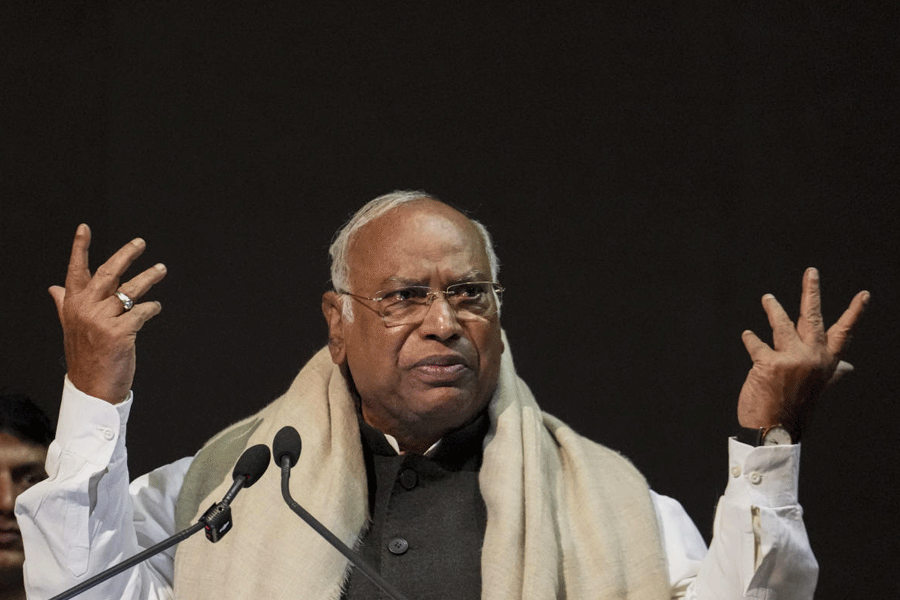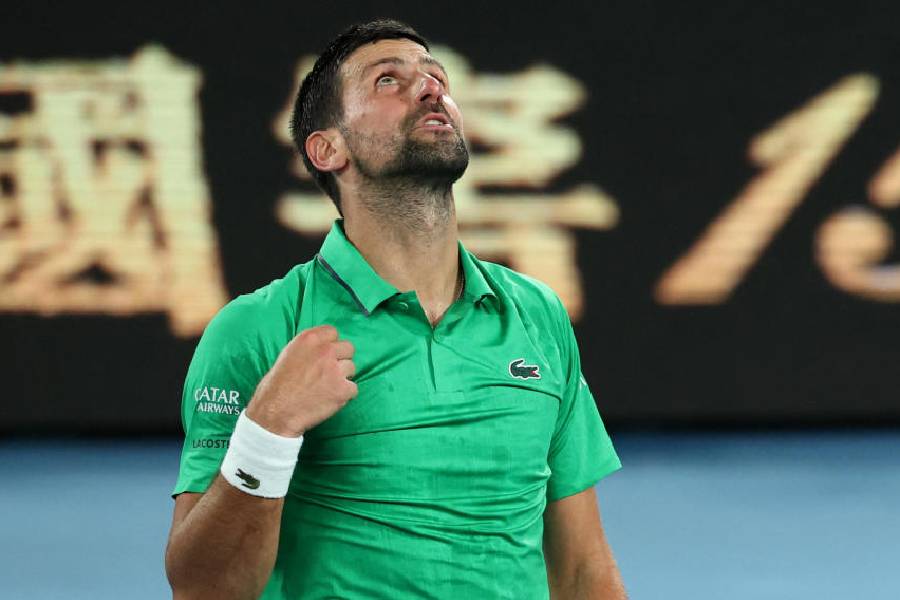
♦ Paavo Nurmi — 1928
The 1924 Paris Olympics saw an incredible feat by Paavo Nurmi. The Flying Finn, who had already made a mark on his Olympics debut in 1920 in Antwerp winning three gold medals, gave Finland five gold medals in Paris. He claimed the 1500m and the 5000m titles, a feat that was considered impossible because the races were run only an hour apart. He became the first athlete ever to win five gold medals at a single Olympics (1500m, 3,000m team event, 5,000m, and the two cross-country events). Nurmi’s feat in Paris was all the more incredible as he had suffered a knee injury that almost scuppered his Olympic journey. But he recovered well in time. He was so methodical in his running that he often carried a bulky stopwatch, even in Olympic finals, so he could be absolutely certain that he was achieving the desired speed. He was so keen on getting the two gold medals on the same day in Paris that he tried out the 1924 Olympic schedule at the Elaintarha Stadium in Helsinki by running the 1500 m and the 5000 m inside an hour, setting new world records for both distances. Nurmi captured a total of 12 medals during his Olympic career (nine gold and three silver).

♦ Jesse Owens — 1936
Jesse Owens is famous as the man who made Adolf Hitler leave the stadium with his achievements. Hitler had wanted to showcase his theory of Aryan racial superiority at the 1936 Berlin Games. But Owens, an African-American, spoiled his party and proved to be the hero of the Games.
In Berlin, Owens won four gold medals, in the 100m, 200m, 4x100m relay and the long jump. He managed to break multiple Olympic records and also set three world records. One of those world records was in the 4x100m relay. The quartet set a time that stood for 20 years. Owen was so popular that before the competition started, Owens was paid a visit by Adi Dassler, the founder of Adidas, and was handed what is recorded as the first sponsorship deal for a male African American athlete.
He won the long jump with a leap of 8.05 m, and later credited his achievement to the technical advice he received from Lutz Long, the German competitor whom he defeated. Later in life, Owens however played down the snub by Hitler and expressed his displeasure at the way his own country treated him.

♦ Emil Zatopek — 1952
Emil Zatopek, nicknamed the “Czech Locomotive” was probably the best long distance runner in Olympic history. He came into world prominence at the 1948 London Olympics, winning gold in the 10,000m. Then he won accolades in 1951 when he broke the hour for running 20 km.
He shot into super-stardom in the 1952 Olympics in Helsinki, winning gold in the 5,000 m and 10,000 m. That would have been almost normal, but then, at the last minute, he decided that he wanted to run the first marathon of his life. And he won a gold in that as well! Not only that, he broke the Olympic record in each event. This trio of gold medals remains a record. He went on to become the first to break the 29-minute barrier in the 10,000 m two years later. While his training methods were almost extreme, they fetched results. In 2013, editors at Runner's World magazine named him the Greatest Runner of All Time. He had many world records in his grasp, especially in the 10,000 m, which he broke twice.
He visited Calcutta in 1986, invited by the state government and laid the foundation stone of Tartan Track for athletics on Sports day, February 22, at the Salt Lake Stadium.

♦ Bob Beamon — 1968
American track and field athlete Robert “Bob” Beamon is best known for his world record in the long jump at the Mexico Olympics in 1968. On October 18, Beamon set a world record for the event with an incredible first jump of 8.90 m (29 ft. 2 ½ in.). That remained the world record for 22 years, 316 days until it was broken in 1991 by Mike Powell — 8.95 m (29 ft. 4 3/8 in.) at the World Championships in Tokyo. The effect of his achievement did not dawn on Beamon immediately, because the announcer called it in metric and he was not sure of what that meant.
When his teammate and coach Ralph Boston explained that he had broken the world record by nearly 2 feet, Beamon was so overwhelmed that he suffered a brief emotional shock, and he collapsed on his feet.
There was, of course, controversy about Beamon’s jump, having done so at a height in Mexico where the rarity of atmospheric pressure may have assisted him, critics had said.

♦ Mark Spitz — 1972
American Mark Andrew Spitz is one of the greatest Olympic swimmers ever. He is a nine-time Olympic champion and held world records in seven events. At the 1972 Olympics in Munich he won seven gold medals, a tally beaten by Michael Phelps much later (8 golds at the 2008 Beijing Games). But with each gold he won in 1972, Spitz set world records, an achievement that has yet to be beaten. Since 1900, no other swimmer has won so great a percentage of all the medals in a single Olympic Games. He went to Munich with two team gold medals from the 1968 Mexico Olympics, bringing his tally to nine gold medals.
He also won a silver and a bronze. His gold medals in Munich were in 200m butterfly, 4×100m freestyle relay, 200m freestyle, 100m butterfly, 4×200m freestyle relay, 100 m freestyle and 4×100m medley relay. Note one more thing: All his gold medals were won with world record timings.

♦ Nadia Comaneci — 1976
Romanian gymnast Nadia Elena Comaneci is not only the most prominent face in world gymnastics, but is credited to have single-handedly popularised the sport among millions of kids across continents. She won three gold medals at the 1976 Olympics in Montreal, but the most awe-inspiring thing about this was that she was the first gymnast to be awarded a perfect score of 10 in an Olympic gymnastics event. Four years later, at the Moscow Olympics, too, she won two gold medals. In 2000, Comaneci was named one of the Athletes of the Century by the Laureus World Sports Academy.
Arriving in Montreal at age 14, Nadia returned a superstar. At the team compulsory section on July 18, her routine on the uneven bars was awarded a perfect ten, a mark that did not even go onto the scoreboard, because it was not programmed to accommodate a ‘10’ score. During the preparation for the event, Omega SA, the traditional Olympics scoreboard manufacturer, enquired if four digits would be necessary for gymnastics. They were told that a perfect 10.00 was not possible. So Nadia's perfect marks were thus displayed as 1.00 instead.

♦ Carl Lewis — 1984
At the 1984 Olympics in Los Angeles, Carl Lewis was entered into four events, hoping to match Jesse Owens’s feat at the 1936 Games in Berlin.
Lewis started with a convincing win in the 100 m. In his next event, the long jump, Lewis won with relative ease. Since he still had heats and finals in the 200m and the 4 × 100 m relay to compete in, he chose to take as few jumps as necessary to win the event.
His first jump at 8.54m was, he realised, sufficient to win the gold. He took one more jump, a foul, then passed his remaining four allotted jumps.
But the public booed him as they wanted to see him surpass Bob Beamon’s legendary record of 8.90 m. His third gold medal came in the 200m, which he won with a new Olympic record. Finally, he won his fourth gold in the 4 × 100 m relay.

♦ Daley Thompson — 1984
English decathlete Francis Morgan Ayodele ‘Daley’ Thompson is regarded as the best decathlete ever. In the difficult discipline, he won gold medals at 1980 Olympics (Moscow) and the 1984 Games (Los Angeles). He also broke the world record four times. His Moscow win was comfortable, following up on his 8,648-point world record set earlier that year.
For the 1984 Games he had Jürgen Hingsen of West Germany to contend with . Hingsen had broken his world record, but at these Games Thompson could not be stopped and retained Olympic title.

♦ Greg Louganis — 1988
This American diver not only displayed the unique talents of a best Olympic diver, but also epitomised the never-say-die attitude of a top-class athlete. Gregory Efthimios ‘Greg’ Louganis won gold medals at the 1984 and 1988 Olympic Games on both the springboard and platform, becoming the only male and the second diver in Olympic history to sweep the diving events in consecutive Olympic Games. His first Olympics was the 1976 Games in Montreal, where he was placed second in the tower event.
He could not attend Moscow because of the American boycott, but in at the 1982 World Championships he became the first diver in a major international meeting to get a perfect score of 10 from all seven judges.
At the 1984 Olympic Games in Los Angeles Louganis won gold medals in both the springboard and tower events with record scores.
At the 1988 Seoul Olympics he suffered a concussion after his head struck the springboard during the preliminary rounds. He took six stitches and came back to win gold by a margin of 25 points.

♦ Sergey Bubka — 1988
Former Soviet and Ukrainian pole-vaulter Sergey Nazarovich Bubka has been the best pole vault star that the world has ever seen. He has been twice named Athlete of the Year by Track & Field News and in 2012 he became one of 24 athletes inducted as inaugural members of the International Association of Athletics Federation’s Hall of Fame. Bubka won six consecutive World Championships titles, an Olympic gold medal and broke the world record for men's pole vault 35 times. He has also beaten his own record 14 times and became the first pole-vaulter to clear 6.0 m and 6.10 m. Bubka, tough, had a relatively poor record in the Olympic Games. His only Olympic success came at the 1988 Seoul Games, at just 5.90 m. In 1992 he failed to clear in his first three attempts and was out of the Barcelona Olympics. Four years later, at Atlanta, a heel injury caused him to withdraw. At the 2000 the Sydney Olympics he was eliminated from the final.

♦ Jackie Joyner-Kersee — 1988
American heptathlete and long jumper Jacqueline ‘Jackie’ Joyner-Kersee is ranked among the all-time greats in the event. In a total of four Olympic Games she won three gold, one silver and two bronze medals in those two events. Sports Illustrated for Women magazine voted her the Greatest Female Athlete of the 20th century. She is also a braveheart, in having the will to overcome severe asthma to reach the top of the world. At the 1984 Olympics in Los Angeles she won silver in the heptathlon, but did not lose heart. At the 1988 Games in Seoul she won gold in both the heptathlon and the long jump. The heptathlon world record she set then, still stands at 7,291 points.
OLYMPIC TRIVIA
FAMILY AFFAIR
The only Olympic event in which mother and daughter competed together was the golf tournament of 1900. The event was won by US golfer Margaret Abbott. Her mother Mary, a novelist, also competed in the event, finishing joint seventh.
FILLIP TO PHILIP
The only Olympian ever to be awarded the Nobel Prize was Philip Noel-Baker of Britain. He won the silver in the 1500m run in 1920, and was awarded the Nobel Prize for Peace in 1959 for his support of multilateral nuclear disarmament.
ROYAL EXCEPTION
The only female competitor not to have to submit to a sex test at the 1976 Games was Princess Anne of the UK, who was competing as a member of the equestrian team. As the daughter Queen Elizabeth II, such a test was seen as inappropriate.
ENIGMA
Poland’s Stella Walsh won the women’s 100m at the 1932 Olympics in Los Angeles, becoming the first woman to break the 12-second barrier. When she was killed in 1980, as an innocent victim in a robbery attempt, an autopsy declared her to be a male.
LIFTER ‘J’
The record for the longest name for an Olympic champion is by female Thai weightlifter Prapawadee Jaroenrattanatarakoon, with a name comprising 31 letters. She won the gold medal in the 53 kg in Beijing 2008. Her name was so long that it did not fit onto the scoreboard, which listed her as “J”.
GENERAL PATTON
George Patton, who would later become a famous US general, competed in the 1912 Stockholm Olympics pentathlon, an event combining pistol shooting, swimming, fencing, cross country and steeplechase.
FOUR FLAGS
Shooter Jasna Sekaric is the only athlete to compete under four different flags. First she competed for Yugoslavia in 1988 and won the gold medal in the 10m air rifle. She competed under the Olympic flag in 1992 Barcelona, winning silver. In Atlanta 1996, Sydney 2000 and Athens 2004 she represented Serbia and Montenegro, then in 2008 and 2012 she competed for Serbia.
MILLAR’S 10
The record for the most appearances in Olympics is held by Canadian show jumper Ian Millar, who made his 10th appearance in London 2012. He competed in every Olympics from 1972 to 2012 except for the 1980 Moscow that Canada boycotted.
CHAUVINISM
No women competed in 1896, as Pierre de Coubertin, the founder of the International Olympic Committee felt that their inclusion would be “impractical, uninteresting, unaesthetic, and incorrect”.
NUMEROLOGY
Beijing Olympics, 2008, began at exactly 8:08:08 PM on 8/8/08 because the number 8 is considered lucky in China.
SHAKEN & STIRRED
♦ 1936 Berlin Olympics: Hitler’s decision not to shake hands with USA’s long-jump medal winner Jesse Owens has been widely interpreted as a snub of an African-American. But some commentators have said that the German Chancellor missed all medal presentations after the first day as he only wished to shake hands with German victors.
♦ 1956 Melbourne Olympics: Seven countries boycotted the Games for three different reasons. Egypt, Iraq, and Lebanon announced that they would not participate in response to the Suez Crisis. The Netherlands, Spain, and Switzerland withdrew to protest the Soviet Union’s invasion of Hungary. People’s Republic of China also chose to boycott the event, protesting the Republic of China (Taiwan) being allowed to compete (under the name ‘Formosa’).
♦ 1972 Munich Olympics: The Munich massacre occurred during the Munich Games, in West Germany, when members of the Israeli Olympic team were taken hostage by the Palestinian terrorist group Black September. Eleven athletes, coaches and judges were murdered by the terrorists.
♦ 1976 Montreal Olympics: In protest against the New Zealand national rugby union team’s 1976 tour of South Africa (controversial due to the regime’s apartheid policies), Tanzania led a boycott of 22 African nations after the International Olympic Committee refused to bar New Zealand.
♦ 1980 Moscow Olympics: US President Jimmy Carter issued a boycott of the games to protest the Soviet invasion of Afghanistan, as the Games were held in Moscow, the capital of the Soviet Union. Many nations refused to participate in the Games. The exact number of boycotting nations is difficult to determine, as a total of 62 eligible countries failed to participate, but some of those countries withdrew due to financial hardships, only claiming to join the boycott to avoid embarrassment.
♦ 1984 Los Angeles Olympics: The Soviet Union and 14 of its allies boycotted the 1984 Games held in Los Angeles, United States, citing lack of security for their athletes as the official reason. The decision was regarded as a response to the United States-led boycott issued against the Moscow Olympics four years earlier. The Eastern Bloc organized its own multi-sport event, the Friendship Games, instead.

♦ 1988 Seoul Olympics: Canadian sprinter Ben Johnson was stripped of his gold medal for the 100 metres when he tested positive for stanozolol after the event.Also, in a highly controversial 3–2 judge’s decision, South Korean boxer Park Si-Hun defeated American Roy Jones, Jr., despite Jones pummelling Park for three rounds, landing 86 punches to Park’s 32.Allegedly, Park himself apologized to Jones afterwards. One judge shortly thereafter admitted the decision was a mistake, and all three judges voting against Jones were eventually suspended. The official IOC investigation concluding in 1997 found that three of the judges had been wined and dined by South Korean officials.
♦ 2000 Sydney Olympics: Romanian Andreea Raducan became the first gymnast to be stripped of a medal after testing positive for pseudoephedrine, at the time a prohibited substance. Raducan, 16, took Nurofen, a common over-the-counter medicine, to help treat a fever.
♦ 2012 London Olympics: The Indian Olympic Committee lodged a protest against the judges’ decision in the match between Indian boxer Sumit Sangwan and Brazilian Yamaguchi Falcao. The judges awarded the match 15–14 in favour of the Brazilian. Television commentators who were surprised by the verdict called it “daylight robbery”. However, the protest which was specific to Round 2 of the disputed match was turned down by the jury.
Source: Wikipedia











